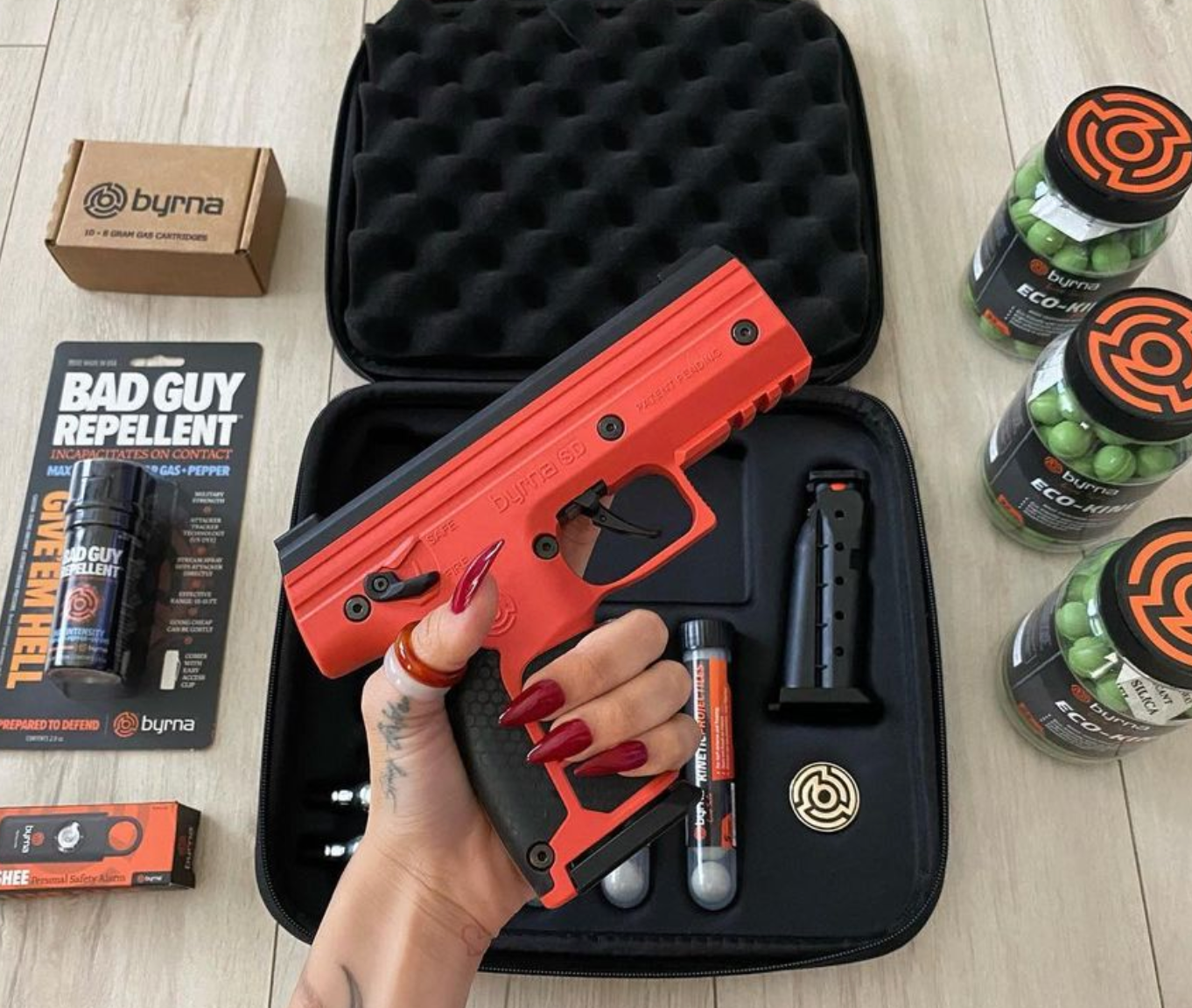
Safety options in Canada can make a real difference when you get through the crowded streets or walk on the frozen trails. Been there myself. A personal alarm gives you a loud siren with just a button press, while a whistle produces a sharp blast with only your breath.
The Canadian weather and busy transit systems will test your safety devices, so you need to know that they'll work when an issue finds you. It's tough out there. Maybe a commuter tried reaching for a whistle in a packed Toronto crowd but had to switch to pressing an alarm instead. The battery life and also the grip design of your device matter when you're caught in a February blizzard or pushing through a subway at rush hour. What about how the cold temperatures drain batteries faster? Or how being in dense crowds changes the way you can access your safety tools?
Different situations need different safety strategies - you can check how each tool performs in city settings and wilderness areas to help you make a smart choice.
Let's get started and look deeper at what makes these safety tools work when danger finds you.
Table of Contents
How These Devices Operate
Personal alarms and whistles help you stay safe. But they work in different ways. Most personal alarms use an easy mechanism to make noise - you pull a pin or press a button to start the loud sound. The noise comes from an electronic component inside the small device.
Whistles need your breath to create the sound. When you blow into the small opening, the air moves through the chamber to make that familiar shrill noise - you need enough air in your lungs to make it loud enough for others to hear.
Sound levels matter when you're calling for help. Personal alarms usually blast between 100-130 decibels, which is about as loud as a rock concert or a jet taking off. That's way louder than you'd think. Whistles usually reach about 100-120 decibels when you blow with all your strength.

Say you want to know how they might perform in Canadian weather conditions. Winter is no joke up north. If you're hiking in Banff National Park, then you might like a whistle because it won't run out of battery during a multi-day adventure. Electronic devices can stop working in extreme cold. But an easy whistle works fine even when the temperatures drop below freezing.
Most of the models last about 1-2 years with normal use. Remember that the batteries drain faster in cold weather, which can be a real issue during those long Canadian winters when the temperatures drop way below zero.
Urban Canadians pick personal alarms for their commutes. A Toronto office worker might attach an alarm to her keychain for those late-night walks home from the subway. The loud electronic sound travels well in city settings, where people recognize it as someone needing help.
Whistles are handy during outdoor activities. Canoeists in Algonquin Park attach whistles to their life jackets. The classic three-short-blast distress signal can travel fairly far across open water or through dense forest.
Sound Output And Psychology
Personal alarms can make an ear-piercing electronic sound that can reach up to 140 decibels. That's about as loud as standing next to a jet engine.
These high-pitched electronic wails do two things at once. They can startle attackers and grab the attention of people nearby who might help you. The sudden, unusual sound triggers an automatic startle response in most people - your body reacts before your brain can even process what's going on.
The sound cuts through regular conversation and hospital noises because our brains naturally pick up on unusual and high-pitched sounds. We're just wired that way.

Whistles work a bit differently. They use how hard you blow and your lung capacity. A survival whistle gives you a sound that travels well in open areas, which is why they're helpful when you're hiking or in parks.
If you're jogging on a quiet Edmonton trail, then you might find a whistle more helpful than an alarm. The pattern of the whistle blasts - three short bursts is the universal distress signal - tells people you need help even from far away.
But is louder always better? Studies show that the quality and pattern of sound matter just as much as how loud it is. Your brain notices unusual sounds more than familiar ones, even when they're quieter. That's why personal alarms use pulsing or cycling patterns instead of a steady tone.
The way it affects an attacker changes too. Make sure your safety device fits where you go and what you do in your life.
Urban Use vs Wilderness Use
Where you live plays a big part in which safety tools work best. You'll have different challenges in Canadian cities compared to wilderness areas. I'll show you how your location should help you make your choice.
Personal alarms work well in busy city areas like Toronto's subway stations or Vancouver's nightlife districts. Their electronic scream breaks through the background noise and grabs attention. You'll usually find plenty of people nearby who can help if you're in trouble.
You might not get the same results with whistles in city settings. Even though whistles make a loud sound, they tend to blend in with the common city noise. People are used to hearing whistles at sports games or from traffic officers, so they might not immediately recognize your whistle as a call for help.
Everything changes when you head to remote locations. The isolation is something else. If you're hiking in Banff's backcountry or driving on isolated Northern Ontario roads, then you'll have some completely different problems. Your cell phone probably won't have any service in these areas. Even worse, electronic personal alarms might run out of battery right when you need them most.
It's where an easy whistle works - it never needs any recharging. Your whistle will still work in the extreme cold when electronic devices fail. We've all been there in the cold. Try the universal SOS pattern that all trained rescuers know - three short blasts, three long blasts, followed by three more short blasts.

The distance between you and other people can also affect which tool works better. Just remember that alarms and whistles only help when someone can actually hear you. Your best choice can depend on who could be around to respond when you need help.
Before you choose, take a look at your common surroundings. Do you mostly spend your time in places with other people nearby who could help you quickly? Or do you venture into areas where you need to depend more on yourself?
Canadians carry different options so they can adapt to different environments - it makes sense if you move between cities and wilderness areas. You can use your personal alarm in more urban settings and switch to your whistle when you head outdoors.
The weather can affect how well these tools work. Heavy rain or strong winds can make the devices harder to hear. Snow tends to absorb sound waves. These conditions can cut back on how far your distress signal travels during those long Canadian winters.
Reliability In Harsh Canadian Weather
Let's talk about these safety devices in Canada's climate. The weather changes you'll have from province to province can affect how well your personal alarm or whistle works when you need it.
The cold creates big problems for electronic personal alarms. Your batteries will drain much faster when temperatures drop below freezing. Winter pulls no punches. At -20 degrees Celsius, which happens pretty often in Canadian regions during winter, a lithium battery might lose power twice as fast as normal - it means your alarm could stop working when you need it most.
Moisture brings another challenge for your electronic devices. The snow, sleet, and rain can get into the circuits and cause them to short out. The alarms you'll find in Canadian stores claim to be water-resistant. But in reality, very few are actually waterproof enough to manage our toughest weather conditions.
Whistles come with their own weather-related problems. Metal whistles can stick to your lips in sub-zero temperatures - a painful situation you can stay away from if you pick plastic or coated metal whistles instead. Did you know the sound of a whistle travels differently in cold, dense air? It usually carries farther than it would in warmer weather.

There was a snowshoer near Whitehorse whose personal alarm battery completely died overnight in -30 degrees Celsius temperatures. Thankfully, the whistle attached to their backpack strap helped rescue teams find them. Small gear options like this can make a real difference when you're outdoors in the wilderness.
Want your personal alarm to work longer in winter? Store it in an inner pocket where your body heat can keep it warm. Go for models with alkaline batteries instead of rechargeable ones for your winter adventures. They tend to be more reliable when temperatures drop low.
Don't think that whistles are weather-proof either. Plastic whistles can become brittle and can crack in extreme cold. That's also the case when they're hit by harsh Arctic winds. Make sure to test your safety equipment, no matter which type you choose to carry with you.
A Layered Safety Plan
You could be thinking about whether you should get a personal alarm or a whistle for safety, but why should you choose just one? Lots of safety gurus have said that having different layers of protection makes the most sense. You can carry both tools and use them together when you need to.
Your personal alarm can be a great option for your safety. When it's activated, it makes a very loud noise that catches an attacker off guard and gets the people around you to look your way. People notice that electronic sound as something unusual and usually want to pay attention.
Electronics aren't perfect. Batteries run out. Devices break. That's why having a safety whistle as your backup makes sense. You don't need to worry about charging it, and a basic whistle can last for years if you take care of it.

Some people in Canada are adding GPS tracking to their safety plan. That can be great for older relatives or those working in isolated places, since it gives an extra bit of security by connecting you directly to help if something happens. The tools you need depend on your life. If you like hiking or camping, a whistle can be more helpful since it works reliably even in the rain or extreme temperatures.
College and university safety programs have figured this out. They hand out whistles to new students while also showing them safety apps to download. Using both physical and online safety methods gives students more ways to stay safe in different situations.
Try to keep your safety tools where you can grab them quickly. Don't bury your alarm at the bottom of your bag or put it on a crowded keychain with a bunch of other stuff. Ask yourself if you could reach it in a hurry if you need it.
Remember to test your safety devices once a month. Push the button on your alarm to check if the battery still works. Give your whistle a quick blow to make sure nothing is blocking the sound.
Protect Yourself and Your Family
We've seen how a combination of different safety devices can create an easy yet helpful plan for life. When you carry an electronic alarm and a manual whistle, it gives you reliability and security no matter where you go. Take just a bit to test your gear and place each device within easy reach - this helps build a habit that can become second nature. These small steps build real confidence when you head out on your own.
Paying attention to your own experiences and listening to the stories of others can help smooth out your safety strategy over time. There's something very reassuring about being ready for the crowded streets and snowy trails, even when the cold weather might drain a battery. A layered strategy doesn't add stress to your life - it works protective habits into your schedule. Keep these devices close, and safety can become less of an afterthought and more of a natural part of each outing.
We sometimes forget the basics. Do a quick monthly check on your tools to remove any anxiety about dead batteries or blocked sound chambers. These helpful habits build quiet confidence that stays with you until the second you need them. Preparation is as helpful as the protection itself.

If you need some reliable self-defense options made for Canadians, we at Byrna Canada have your back. Our less-lethal pistols are available along with rifles for protection. We also offer you CO2 cartridges and sirens that need no background checks and are legal in all provinces. We ship directly to your home, and launcher orders come with free shipping.
Visit Byrna.ca to browse our full lineup and stay protected wherever you go.




